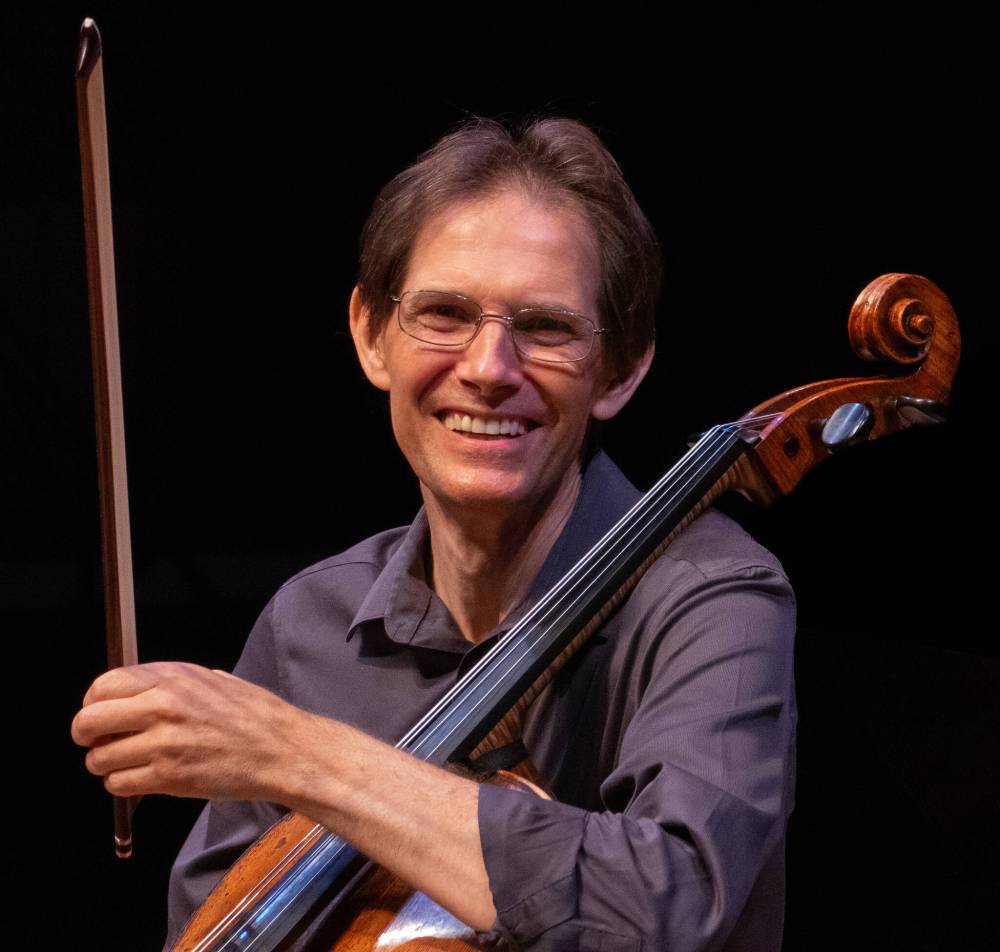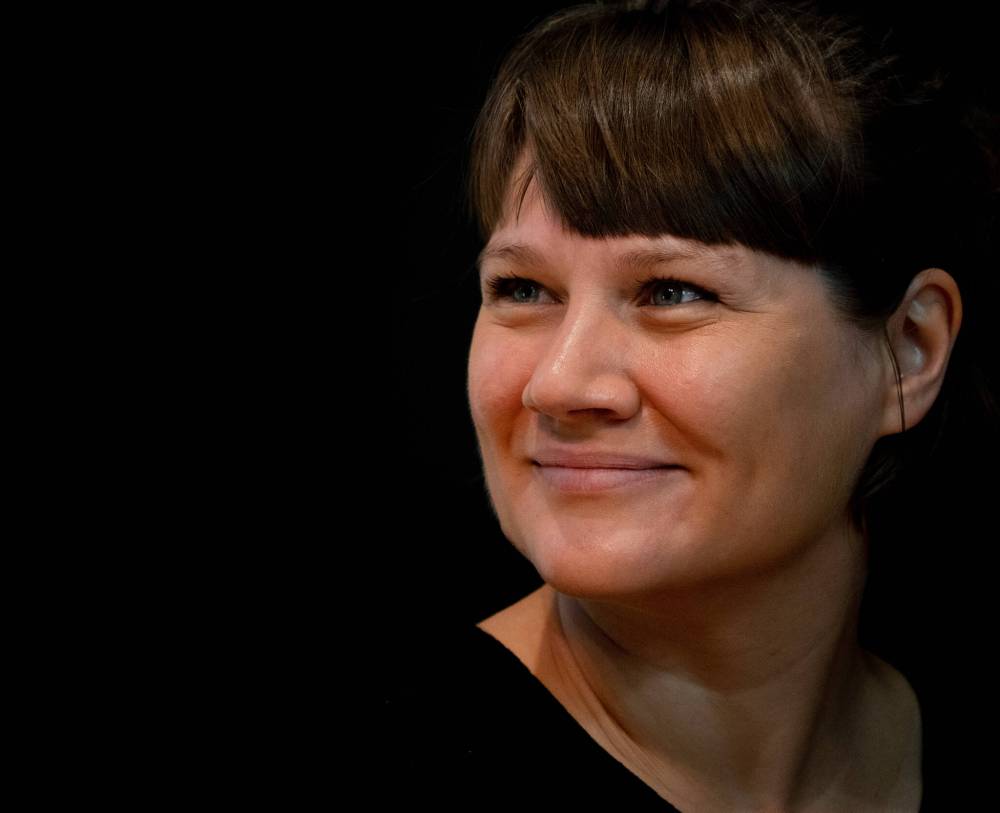Slav to the rhythm
Cello-piano duo mesmerize with sounds of eastern Europe
Advertisement
Read this article for free:
or
Already have an account? Log in here »
To continue reading, please subscribe:
Monthly Digital Subscription
$0 for the first 4 weeks*
- Enjoy unlimited reading on winnipegfreepress.com
- Read the E-Edition, our digital replica newspaper
- Access News Break, our award-winning app
- Play interactive puzzles
*No charge for 4 weeks then price increases to the regular rate of $19.95 plus GST every four weeks. Offer available to new and qualified returning subscribers only. Cancel any time.
Monthly Digital Subscription
$4.99/week*
- Enjoy unlimited reading on winnipegfreepress.com
- Read the E-Edition, our digital replica newspaper
- Access News Break, our award-winning app
- Play interactive puzzles
*Billed as $19.95 plus GST every four weeks. Cancel any time.
To continue reading, please subscribe:
Add Free Press access to your Brandon Sun subscription for only an additional
$1 for the first 4 weeks*
*Your next subscription payment will increase by $1.00 and you will be charged $16.99 plus GST for four weeks. After four weeks, your payment will increase to $23.99 plus GST every four weeks.
Read unlimited articles for free today:
or
Already have an account? Log in here »
Hey there, time traveller!
This article was published 23/10/2023 (813 days ago), so information in it may no longer be current.
The Women’s Musical Club of Winnipeg bared its Slavic Soul Sunday afternoon, launching its 130th anniversary season by whisking audience members to the storied landscapes of eastern Europe.
The weekend matinée, held at Laudamus Auditorium, featured cellist Paul Marleyn and collaborative pianist Madeline Hildebrand in an intimate chamber program showcasing works from Ukraine, Estonia, Russia, Czech Republic and Armenia.
Much closer to home, it also included a WMC-commissioned world première by Canadian composer Karen Sunabacka.

The former Winnipegger (who was in attendance), now serving on faculty with the University of Waterloo, has been exploring her familial roots, and particularly her Métis heritage, in her more recent compositions. Her piano trio Embroidered with Jagged Patterns is the latest in that canon, deriving its title from a poignant poem her mother Joyce Clouston (also attending the show) wrote about her relationship with her “medically fragile” late sister and the composer’s aunt, Beverley.
With the duo joined by violinist Elation Pauls, the expressive piece that begins with unison tones — evoking the sound of a fiddle tuning up — captures both the playfulness and the deep bond between the two siblings. The players demonstrated conviction in bringing to life this heartfelt work, which builds from its initial sparser textures to final cascades of sound like floods of tender memories unleashed.
Music Review
Women’s Musical Club of Winnipeg: The Slavic Soul
● Laudamus Auditorium, Canadian Mennonite University
● Sunday, Oct. 22
★★★★ out of five
The program effectively highlighted the varying moods, colours and sensibilities of Slavic music. Estonian composer Arvo Part’s Spiegel im Spiegel is a spellbinding piece one simply never wearies of hearing, regardless how many times one has experienced this stunner played live.
The pair’s performance did not disappoint, ushering listeners into its mesmerizing, highly introspective sound world in which Marleyn’s lyrical cello theme was underpinned by Hildebrand’s simple piano chords, pierced by bell-like tones exemplifying the composer’s trademark “tintinnabuli” style.
Another highlight was Epilogue LB by Valentyn Sylvestrov, a Ukrainian composer who relocated to Berlin after the ongoing war broke out in his homeland. It’s dedicated to his beloved wife Larissa, whose death inspired the short, elegiac piece, insightfully introduced by Hildebrand as “silence set to music.” It also showcased the innately elegant playing of Marleyn, who drew his bow across his strings with utmost sensitivity, as Hildebrand met him note for every stirring note, as she also did in Armenian composer’s Gayane Chebotaryan’s Prelude no. 3, exemplifying the adage “less is more.”
Rachmaninov’s Vocalise was another high point, though the artists’ relatively brisk pace and extroverted approach made this interpretation more rooted in muscle and bone than ethereal spirit. Time should stand still when hearing a performance of this quintessentially lyrical work. This version needed to breathe more, in keeping with the music’s original incarnation as a vocal composition.

The afternoon also included fireworks, with David Popper’s passionate showstopper Hungarian Rhapsody, including brilliant passagework by both Marleyn and Hildebrand, as well as Rodion Shchedrin’s In the Style of Albeniz, propelled by fiery Spanish flamenco-style rhythms performed by both artists with sharp attack.
Last but not least, Prokofiev’s Sonata featured Marleyn’s cello beginning in its most lugubrious depths, while Janacek’s Pohadka, a programmatic, fantastical piece, saw the pair weaving their individual musical lines together as though in thoughtful dialogue.
The art of concert programming is always a mysterious alchemy of disparate forces; this 135-minute afternoon (including intermission) proved too much of a good thing. While spoken, onstage introductions are welcome even when they add length to a show’s overall running time, the program itself could — and should — have been whittled by at least 15 minutes. This would have left us wanting more, rather than feeling overly spent and saturated by our journey to the East.
holly.harris@shaw.ca
Holly Harris writes about music for the Free Press Arts & Life department.
Our newsroom depends on a growing audience of readers to power our journalism. If you are not a paid reader, please consider becoming a subscriber.
Our newsroom depends on its audience of readers to power our journalism. Thank you for your support.
History
Updated on Tuesday, October 24, 2023 10:44 AM CDT: Updates photo credits


